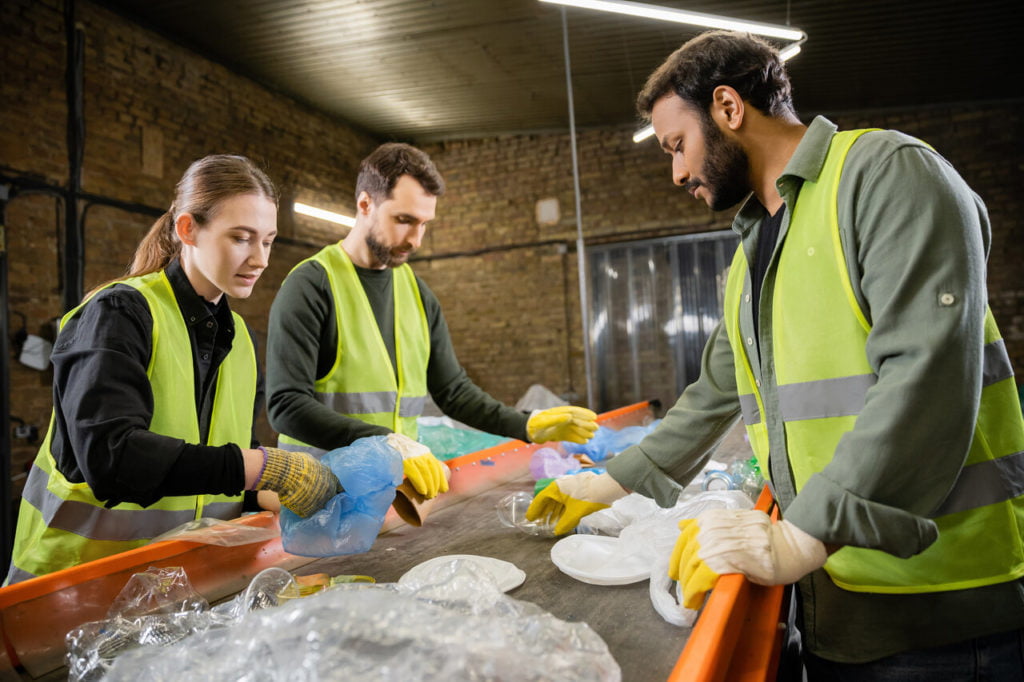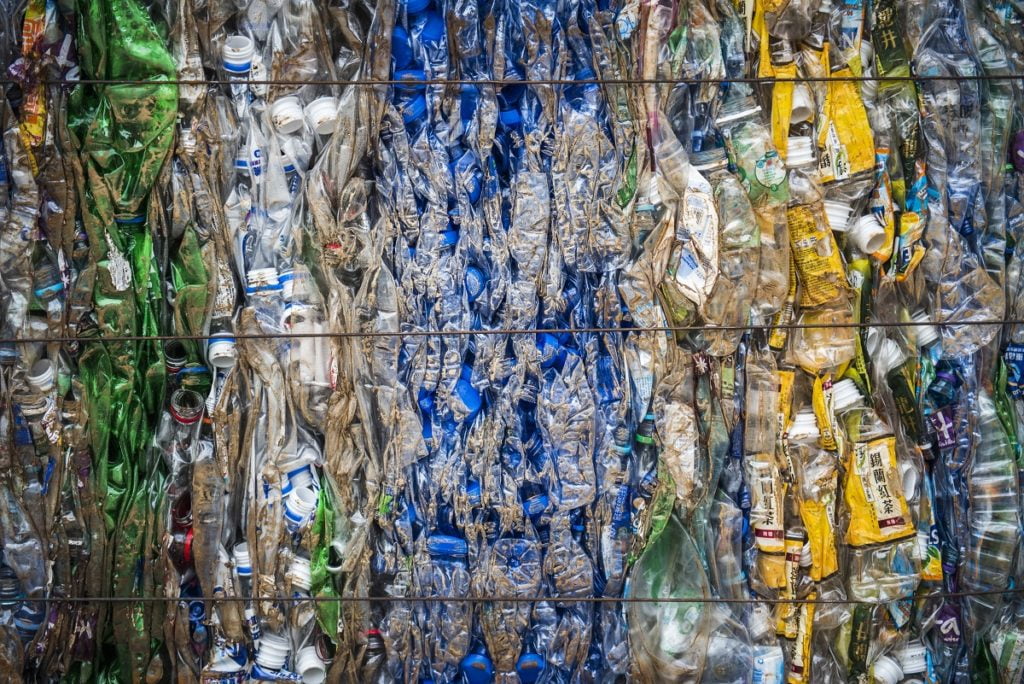In the modern, highly competitive automotive industry, having an efficient and streamlined supply chain is essential for seamless manufacturing operations and ensuring on-time product delivery.
With plastic materials playing an indispensable role in vehicle production, it is crucial to explore innovative solutions for managing waste plastic generated during manufacturing. One such powerful solution is plastic reprocessing, a closed-loop system that allows automotive manufacturers to optimise their supply chains, reduce costs, and enhance their sustainability efforts.
Pulse Plastics, a leading specialist plastic solution provider in the UK, aims to support automotive manufacturers with plastic reprocessing technology, facilitating the efficient use of waste plastic materials and contributing to a circular economy. By implementing a closed-loop system, companies can revolutionise their supply chains by reducing raw material consumption, enhancing waste management practices, and showcasing their dedication to environmentally responsible operations.
Plastic reprocessing involves converting waste plastic materials into reusable raw materials that can be utilised for manufacturing new automotive components. This process ensures that plastic waste no longer ends up in landfill or incineration facilities, helping to reduce environmental pollution and waste management costs. Moreover, by partnering with Pulse Plastics, automotive manufacturers can access reliable, high-quality reprocessed plastic materials, minimising disruptions in their supply chains.
In this blog series, we will explore the benefits of incorporating plastic reprocessing into the supply chain for automotive manufacturers, discussing the advantages and potential challenges of this sustainable waste management solution.
We will delve into the closed-loop system and examine how innovative plastic reprocessing methods can drive efficiency, profitability, and environmental stewardship in the automotive industry, ultimately contributing to a brighter, greener future for all.
Stay tuned to learn more about the pivotal role plastic reprocessing can play in transforming the automotive industry – from optimising supply chains to promoting sustainable practices and cost-saving measures.
The Benefits of Plastic Reprocessing in Automotive Supply Chains
1. Reduced Raw Material Consumption
A key advantage of incorporating plastic reprocessing into the automotive supply chain is the potential to reduce the consumption of raw materials. By reprocessing waste plastic materials and utilising them in the manufacturing process, automotive companies can minimise their reliance on virgin plastics, which require considerable energy and resources to produce.
This not only leads to a more sustainable production process but also contributes to the global movement towards a circular economy, where resources are conserved, and waste is significantly reduced.
2. Enhanced Waste Management Practices
With vast amounts of waste plastic generated throughout the automotive production process, managing this waste in an environmentally responsible manner is essential. Plastic reprocessing enables companies to transform waste plastic materials into high-quality raw materials for further use in manufacturing.
By adopting this closed-loop system, automotive businesses can improve their waste management practices, diverting waste from landfill and incineration facilities while reducing their environmental footprint.
3. Cost-Effective Solutions for Plastics Management
Plastic reprocessing can offer cost-saving benefits for automotive manufacturers. Companies can access reprocessed plastic materials at competitive prices by working with a specialist plastic solution provider like Pulse Plastics, providing a more affordable alternative to virgin plastics.
Moreover, the reduced waste management costs resulting from reprocessing can contribute to further financial savings, enabling companies to invest in other business areas.
4. Improved Material Availability and Supply Chain Resilience
A streamlined supply chain is vital for ensuring the consistent availability of materials required for automotive production. By incorporating plastic reprocessing into their supply chain strategy, businesses can mitigate the risk of material shortages or disruptions in supply.
Reliable access to reprocessed plastic materials can help ensure a smoother and more efficient manufacturing process, allowing companies to maintain their production schedules and meet customer demands.
Challenges of Implementing Plastic Reprocessing in the Automotive Industry
1. Quality Assurance and Compliance
One of the challenges associated with implementing plastic reprocessing in the automotive supply chain is ensuring the quality and compliance of reprocessed plastic materials. It is crucial that these materials meet industry standards and perform as expected.
Pulse Plastics is committed to providing high-quality reprocessed plastics, adhering to stringent quality control measures to ensure that the materials supplied meet the required specifications and performance standards.
2. Integration into Existing Processes
Another potential challenge for automotive manufacturers is the integration of plastic reprocessing into their existing production processes. Companies may need to modify their manufacturing operations and adopt new technologies to accommodate the use of reprocessed plastic materials.
It is vital to work with an experienced plastic solution provider like Pulse Plastics to receive guidance and support throughout the integration process, ensuring a seamless transition towards more sustainable practices.
3. Changing Industry Mindset
Lastly, incorporating plastic reprocessing into an automotive supply chain may require a shift in industry mindset, particularly towards waste plastic materials. Traditionally seen as disposable, reprocessing shifts the perception of these materials as valuable resources.
Advocating for this change and educating stakeholders on the benefits of plastic reprocessing can help facilitate the adoption of this closed-loop system across the industry.
The Path Towards Sustainable Automotive Supply Chains
With the numerous advantages provided by plastic reprocessing in automotive supply chains, it is clear that this closed-loop system can drive efficiency and sustainability in the industry. By adopting plastic reprocessing, automotive manufacturers can reduce their raw material consumption, enhance waste management practices, save costs, and improve supply chain resilience.
However, it is essential to address the challenges associated with implementing plastic reprocessing, such as quality assurance, integration, and changing industry mindset. By partnering with a trusted plastic solution provider like Pulse Plastics, automotive companies can overcome these obstacles and reap the benefits of a more sustainable and efficient supply chain.
Conclusion
Plastic reprocessing offers a valuable opportunity for automotive manufacturers to streamline their supply chains and embrace more sustainable practices. By incorporating this innovative waste management solution into their operations, companies can enjoy numerous benefits, including reduced raw material consumption, improved waste management, cost savings, and supply chain resilience.
Pulse Plastics is dedicated to providing high-quality reprocessed plastic materials and supporting automotive businesses in their journey towards a sustainable and efficient supply chain. Together, we can drive the automotive industry towards a greener future, shaping a world where resources are conserved and waste is minimised.


